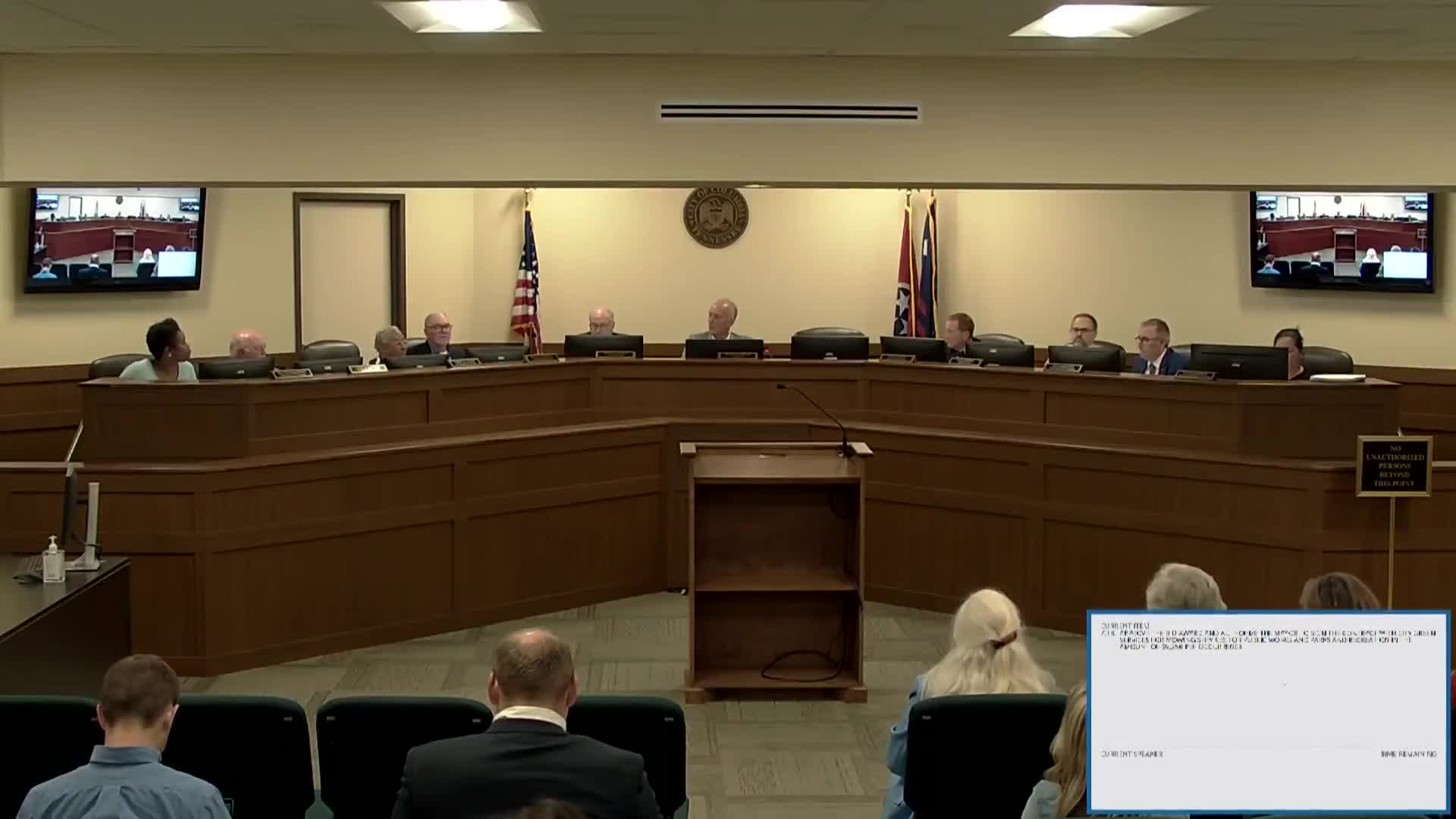City Council approves low bid for mowing contract amidst legal concerns
June 13, 2025 | City of Columbia, Maury County, Tennessee
Thanks to Scribe from Workplace AI , all articles about Tennessee are free for you to enjoy throughout 2025!

This article was created by AI using a video recording of the meeting. It summarizes the key points discussed, but for full details and context, please refer to the video of the full meeting. Link to Full Meeting
A significant point of discussion revolved around the necessity of accepting the lowest bid for city mowing services, a requirement dictated by state law. Councilman Huffman emphasized the legal implications of not adhering to this mandate, referencing a 2013 opinion from the Tennessee Attorney General that clarified the prohibition against local preferences in competitive bidding. “If we don’t accept the low bid, we could face legal problems,” he warned, highlighting the potential for lawsuits from bidders if the council deviated from the established process.
Despite the council's desire to support local businesses, the reality of the situation was clear: failing to approve the low bid would leave the city without mowing services for an extended period. “If we don’t approve it tonight, we’re going to go a month without any mowing,” Huffman noted, underscoring the urgency of the decision.
As the council moved forward, a motion was made and passed, allowing the low bid to proceed despite the mixed feelings among members. The vote reflected a commitment to compliance with state law, even when it conflicted with local preferences.
Following this contentious discussion, the council shifted focus to resolutions concerning infrastructure improvements. They unanimously approved the acceptance of sewer improvements for Bear Creek Glen Phase 2 and the streets and drainage enhancements in the Honey Farm Subdivision Phase 2 Section 10 A. These resolutions marked a step forward in maintaining and improving the city’s infrastructure, ensuring that essential services continue to meet the needs of Columbia’s residents.
As the meeting concluded, the council’s decisions echoed a broader narrative of balancing legal obligations with community interests, a challenge that many local governments face. The evening’s discussions not only highlighted the complexities of municipal governance but also reinforced the council’s commitment to serving the city of Columbia, even when the path forward is fraught with difficult choices.
Converted from City of Columbia, TN Council Meeting 2025-06-13 meeting on June 13, 2025
Link to Full Meeting
Comments
View full meeting
This article is based on a recent meeting—watch the full video and explore the complete transcript for deeper insights into the discussion.
View full meeting
